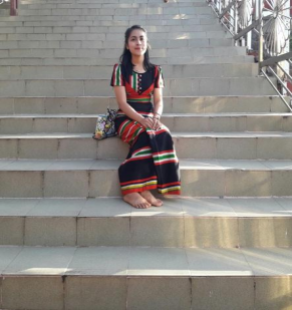
by So Jung Rim | Aug 15, 2018 | CU SISU, News
If the universities nurture young people not only academically but also practically, it can have positive effects for the community.
What’s your name? Tell us about yourself.
My name is Nyein Nyein Thaw. I’m studying a masters course of accounting and finance at the Co-operative University, Thanlyin. I’m a volunteer of ESC (Myanmar). I propose to be a member of innovation and creative paper art and crafts project. I want to remind people to have awareness about the environment, to share knowledge, ideas and ways how to conserve resources sand how to improve our society. I also would like to console depressed people and help to reduce their sadness.
What do you think the most important social challenges are at the moment?
There are social challenges in many areas of our society. However, I think the most important social challenges at the moment in our country are unemployment and pollution.
What are you doing to address this challenge or what to do you hope to do?
Addressing social challenges should be seen as the main aims of the community. To solve the unemployment problem, we need to create more job opportunities. It needs to involve more entrepreneurship firms and the ability to produce goods domestically. Currently, people want to get good jobs and jobs want skilful and experienced people. So, the problem needs the educational sector to be improved and many part time jobs to be created for students. By means of our country, it should produce more agricultural food and to raise national productivity.
To solve the pollution problem, the government should adopt rules and regulations about the waste and protect this through the law. The law also needs to be enforced and the citizens need to abide the law. Bins should be put at many places and many recycle processes should be done. We should try to substitute things that can easily decay instead of plastic.
How do you think students or young people can play a role in helping solve these challenges?
Young people can play a role in helping solve these challenges. They’re very important because they’re active, fresh, energized, curious, and keep in touch with modern technology. They’re enthusiastic to fight against the challenges. They also understand the current situation.
What did you learn at the SEASIN studio?
At the SEASIN studio, I learned new ideas, creative thinking, and campaigns. I learnt that coordination and negotiation are important to solve a problem.
Has the SEASIN studio introduced you to new ways of thinking or working?
The SEASIN studio has introduced me to new ways of expressing my opinion and ideas to combine with the ideas of others. I realized that when a project is implemented to solve the social problem, it also needs to investigate society’s perception about this impact. And I’m getting more interested in how to participate in social activities.
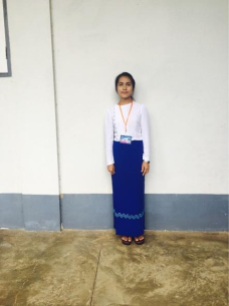
What does social innovation mean to you?
Social innovation means to me the improving of existing things and developing new things by using resources efficiently and effectively. It must have social impact and be beneficial for the society.
Do you think it is important that universities play a role in the community that is more than as academia?
Yes, I think. Because universities have many young and knowledgeable people. If the universities nurture these young people not only academically but also practically, it can have positive effects for the community. The universities create teamwork. For an instance, at our university, some teachers are performing some projects such as recycle processes, teaching handicraft. Our university also gives information to participate as a volunteer in some enterprises and knowledge by outside experts and business owners.
What can universities do to help students become better problem solvers of future challenges?
Universities can hold debates and group competitions. They can get students to study cases, to evaluate cause and effect, to find ways to solve problems and to think how to plan different ways to work towards sustainability.

by So Jung Rim | Aug 13, 2018 | CU SISU, News
Social innovation is the ideas that are more efficient, more effective, fairer, and sustainable to solve social needs and issues.
What’s your name? Tell us about yourself
My name is Shoon Lae Sandar Oo. I am a second year specializing in Social Enterprise Management at Co-operative University, Thanlyin, Myanmar. I have a strong desire to achieve a social entrepreneurship business venture as a career path after graduation. Then, I would like to solve the social issues in the community through my business profits. So I decided to become a social entrepreneur to create jobs and the conditions for a prosperous society. As I haven’t graduated yet, I want to obtain extensive knowledge in the field of social innovation as part of my further studies. Therefore, I wish to study social entrepreneurship, community development and social innovation in overseas universities.
What do you think the most important social challenges are at the moment?
I think that there are many social challenges in our city, our country and globally. In my opinion, for my country firstly, not having a job is one of the social issues. Unemployment always challenges people. Constant unemployment affects people’s future ability to find a job, their psychological well-being and more. Even the employed people are affected by unemployment because of the ripple effects. Secondly, disability barriers is a big social problem because it means disabled people don’t have the same chance as normal people. They don’t have the job opportunities. Thirdly, social problems of street children who are experiencing poverty, homelessness, abuse and lack of parenthood, low education… is another important social challenges I think.
What are you doing to address this challenge or what do you hope to do?
The first point is that many citizens across our country agree to solve unemployment is a priority for both government and citizens as our country is developing as well as in its transition. Mostly, women and men who have a lack of education are facing difficulties because they don’t have so many job opportunities. So, I will give the job by providing vocational training to them. In my point of view, I have many ideas to train them in how to sew clothes, how to make arts and crafts and so on. Also, I would like to generate learning opportunities for disabled people by providing a vocational training with proper guidance and genuine care to achieve a status of being a sensational person. In addition, I would like to provide adequate health, education and social services for street children by creating and supporting outreach education and training to them.
How do you think students and young people can play a role in helping solve these challenges?
We can participate and support in solving the social problems of our community as members, alumni, stakeholders, vocational trainers, SISU users and volunteers, etc. I am now participating in the waste recycling and social innovation project under the TCU SISU activities. I can help in solving these challenges by providing a proper vocational training of making handicraft products and sewing patterns designer clothing for unemployed people, disables and street children.
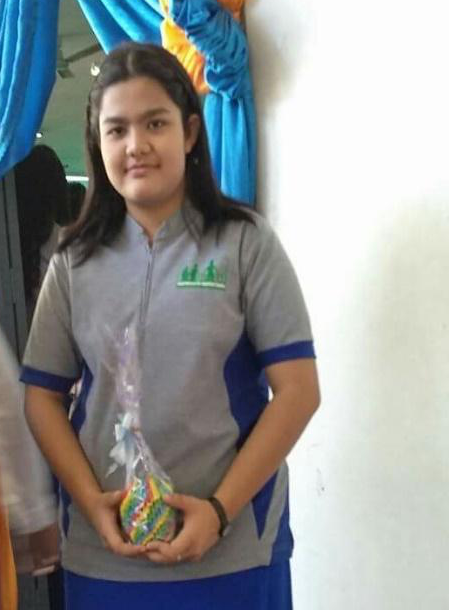
What did you learn at the SEASIN studio?
I learned a lot of lessons from the SEASIN studio workshop in regard to which problem is the most important in the society, how to solve the social problem, how to design the project plan, how to create a project with the mode of project management and how to implement the project. Moreover, I gained communication and presentation skills, team work spirit, creative and innovative ideas and more extensive knowledge than I had before.
Has the SEASIN studio introduced you to new ways of thinking and working?
Yes, I had a lot of new ways of thinking and working in my personal skills, thanks to the SEASIN studio. After attending this studio, I could speak and discuss with my friends about the project implementation process and how to identify and solve the social problems. It has a tremendous effect on my education by providing me with the opportunities and enhancing my personal skills such as creative thinking, innovative ideas, communication, presentation and team work skills related to my SEASIN studio experiences.
What does ‘social innovation’ mean to you?
Social innovation is the ideas that are more efficient, more effective, fairer, and sustainable to solve social needs and issues.
Do you think it is important that university play a role in the community that is more than as academia? How?
From my point of view, every university should provide higher education to the students to achieve academic qualification as well as the professional and skill development training to marginalized people to achieve a unique status in the community. It is also important that universities play a role in the community because there are many social needs in the society such as risk and vulnerability, jobless, mental health problems and so on. Therefore, we should work together with the stakeholders to help and support in solving the social challenges and reducing the poverty for the local areas surrounding our university.
What can universities do to help students become better problem solvers of future challenges?
Universities can help students by providing and enhancing the knowledge of social innovation: how to create ideas, meet the social needs in the society to become better problems solvers of future challenges. Moreover, universities can support technical and service trainings such as computer skills, arts and crafts, sewing designing skills, customer service skills in turn, we can share these knowledge and experiences with those who are socially excluded – the marginalized, and disadvantaged people.
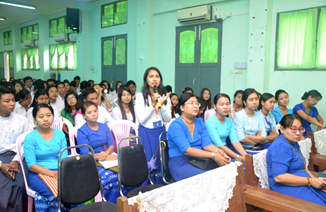
by myothein | Aug 9, 2018 | CU SISU, News
On 13-7-2018, TCU SISU Team conducted the seminar on “Social Enterprises Landscape in Myanmar” to share the knowledge and ideas of social entrepreneurship strategy and social enterprise landscape in Myanmar. On the event, Pro Rector U Oo Tin Thein delivered welcoming speech to audiences. Then, Social entrepreneurship strategy, intimidator , the status of social enterprise and impact investment, social enterprise and social investment eco-system, recent social investments, challenges faced by social entrepreneurs in Myanmar, why social entrepreneurship is important for development, developing the social entrepreneurship policy for Myanmar, and capacity building etc. have presented by Mo Lwin, Lecturer | Entrepreneur | Consultant, Vice President of Social Enterprise Development Association Myanmar. The participants and SISU users ask questions in regard to the social challenges of social enterprises and how to address these social issues and problems and Mo Lwin discussed these issues. After that, SISU teams took group photo together with the participants and social innovators. The session was ended at 12:00 pm.
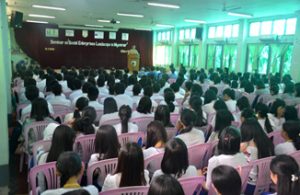
Opening Speech (13.7.2018)
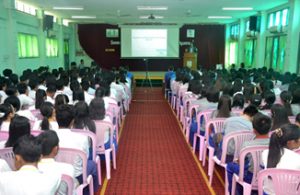
Presentation by U Mo Lwin (SeDaM)
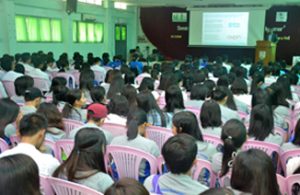
Presentation by U Mo Lwin (SeDAM)
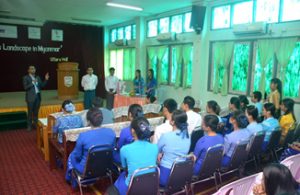
Q & A Session
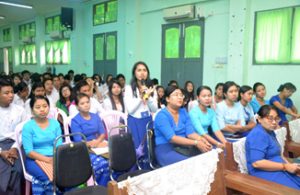
Q & A Session
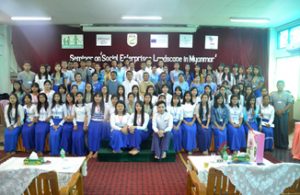
Group Photo on completing the seminar
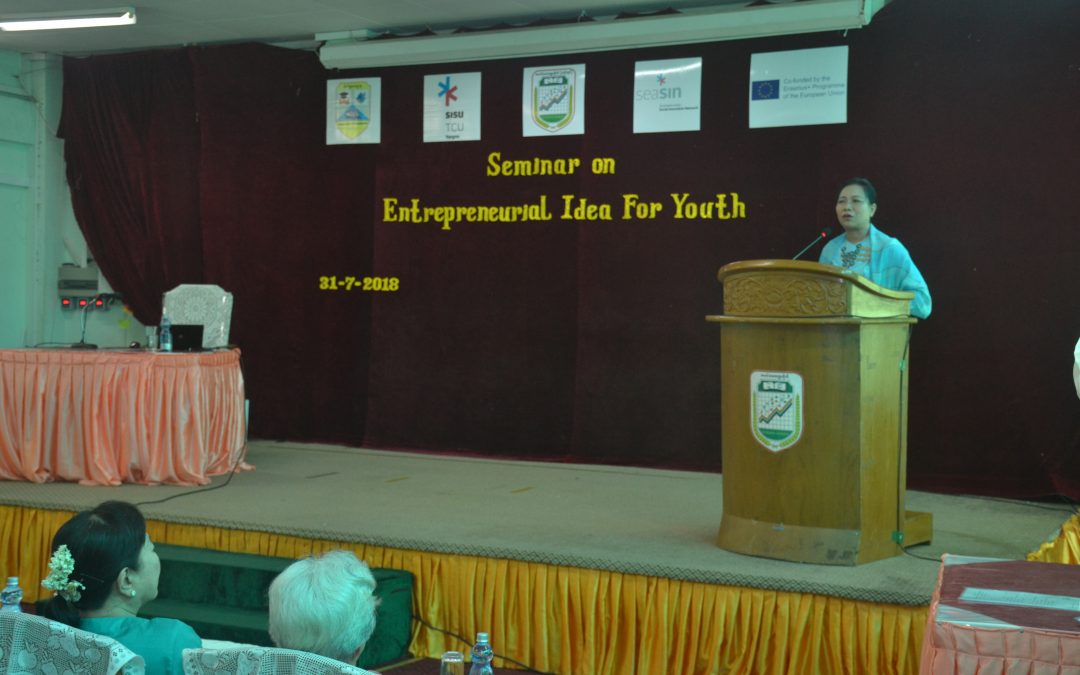
by myothein | Aug 9, 2018 | CU SISU, News
On 31-7-2018, TCU SISU Team conducted the seminar on “Entrepreneurial Idea for Youth” to cultivate and develop entrepreneurial sprit and idea among the students during higher education. On the event, Prof. Dr. Yi Yi Win, Rector delivered welcoming speech to the participants. Then, the characteristics of entrepreneur, well-known entrepreneur around the world, AEC and entrepreneurial idea, etc. have been presented by U Ya Myint (Entrepreneur), well-known writer and academician of Myanmar. The participants and SISU users ask questions with regard to the entrepreneurship. After that, SISU teams took group photo together with the participants. The session was ended at 12:00 pm.
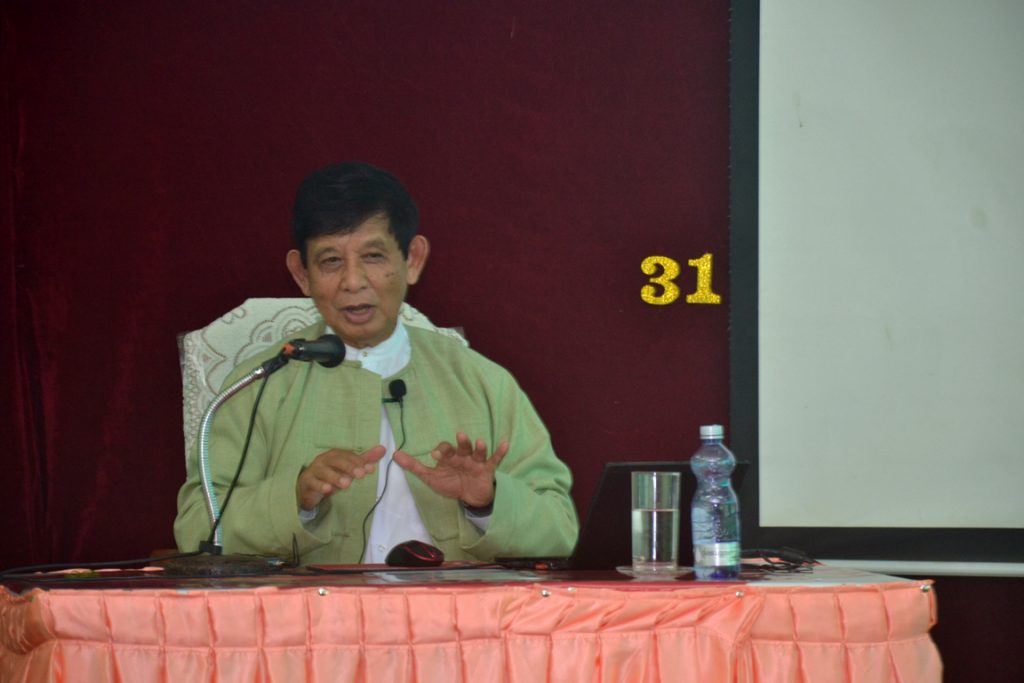 U Ye Myint (Entrepreneur)
U Ye Myint (Entrepreneur)
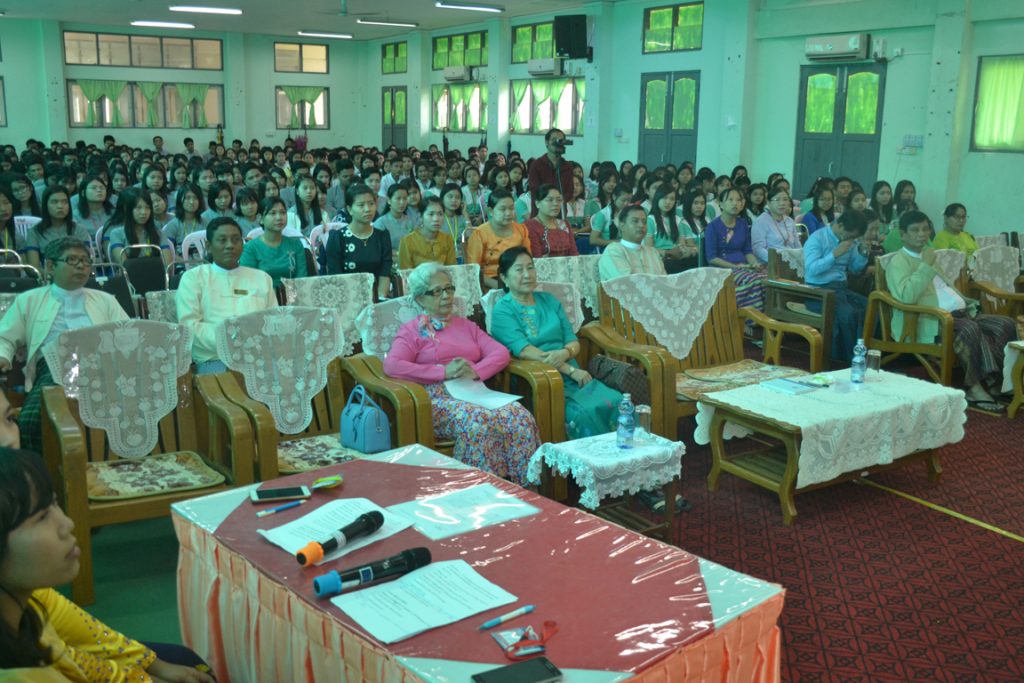
Participants of the Seminar
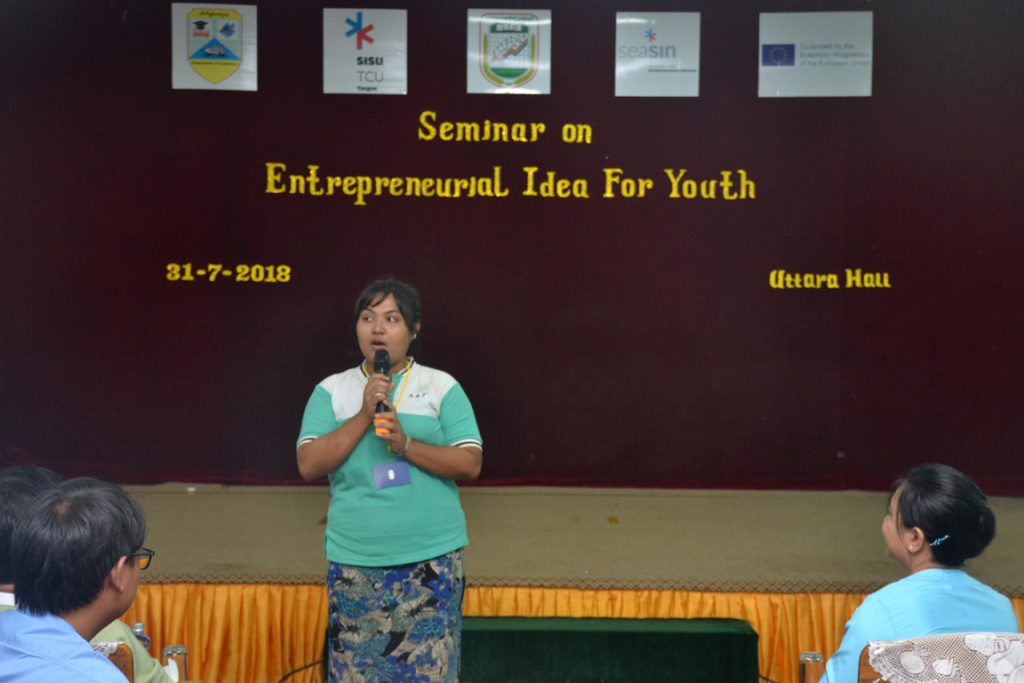 Q & A session (31.7.2018)
Q & A session (31.7.2018)
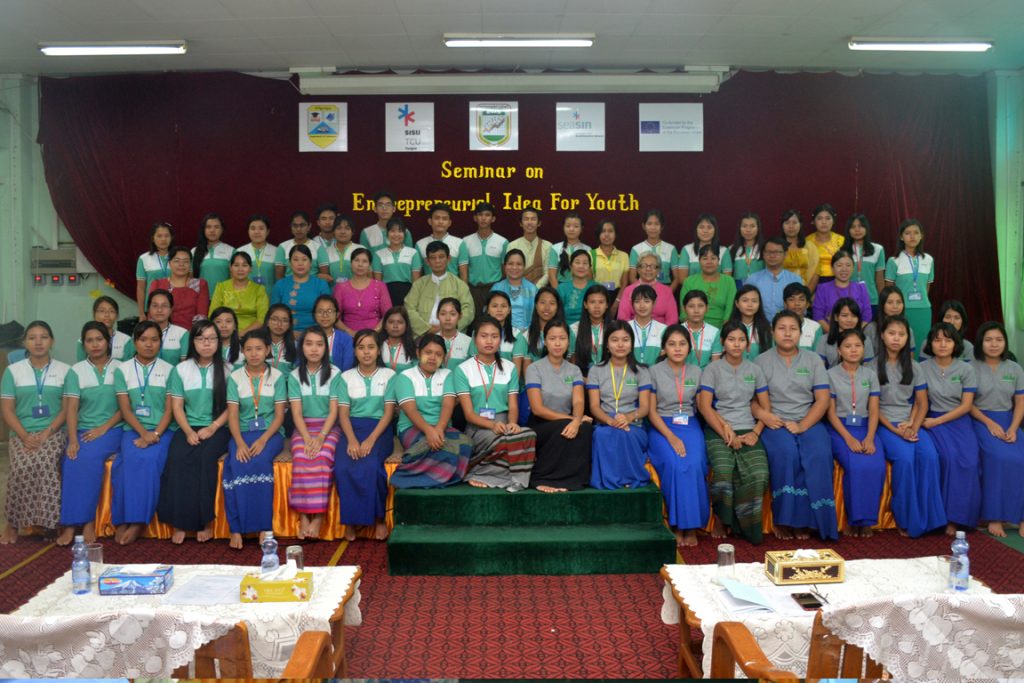
Group photo
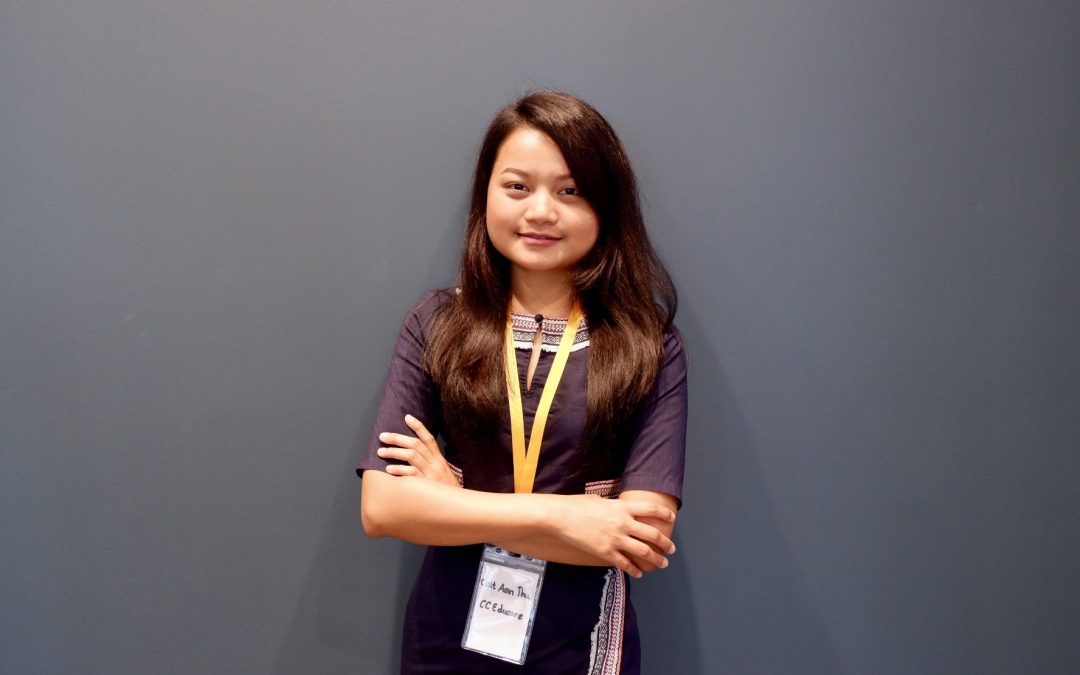
by So Jung Rim | Aug 6, 2018 | News
“Universities should play a main role to teach students to become more socially responsible and to also become more innovative.”
What’s your name? Tell us about yourself
My name is Chit Aein Thu, I am the Founder of CCEducare Myanmar, a social enterprise organization in Myanmar. I am an advocate for quality education and youth empowerment.
What do you think the most important social challenges are at the moment?
In our country, I believe that the education system is outdated and does not fit into the modern society anymore. The curriculums are no longer relevant and do not enable students in the real working life. At the same time, the access to quality education is very low, especially in Myanmar.
What are you doing to address this challenge or what do you hope to do?
I am currently introducing online learning to reduce the limitation of quality education access using information technology. We envision Myanmar to become a country where all the students can have access to equal education.
How do you think students and young people can play a role in helping solve these challenges?
Students should be encouraged to become innovative and to solve challenges outside of normal means.
What did you learn at the SEASIN studio?
During the SEASIN Studio, I learned how social challenges involve the consideration of related parties and their efforts and also how actions can be planned well in advance through the design workshop.
Has the SEASIN studio introduced you to new ways of thinking/working? Has it changed your perspective or your behaviour?
Yes, SEASIN Studio taught me new ways of thinking and more effective designing in creating solutions.

What does ‘social innovation’ mean to you?
To me, ‘social innovation’ is being creative and discovering new ways of solving social issues to improve better communities.
Do you think it is important that universities play a role in the community that is more than as academia?
Definitely yes. Universities should play a main role to teach students to become more socially responsible and to also become more innovative.
What can universities do to help students become better problem solvers of future challenges?
There will always be new challenges that we will face in the future. Universities can teach students the innovation process steps such as identifying the problem, generating an idea, and then implementing and monitoring those ideas.


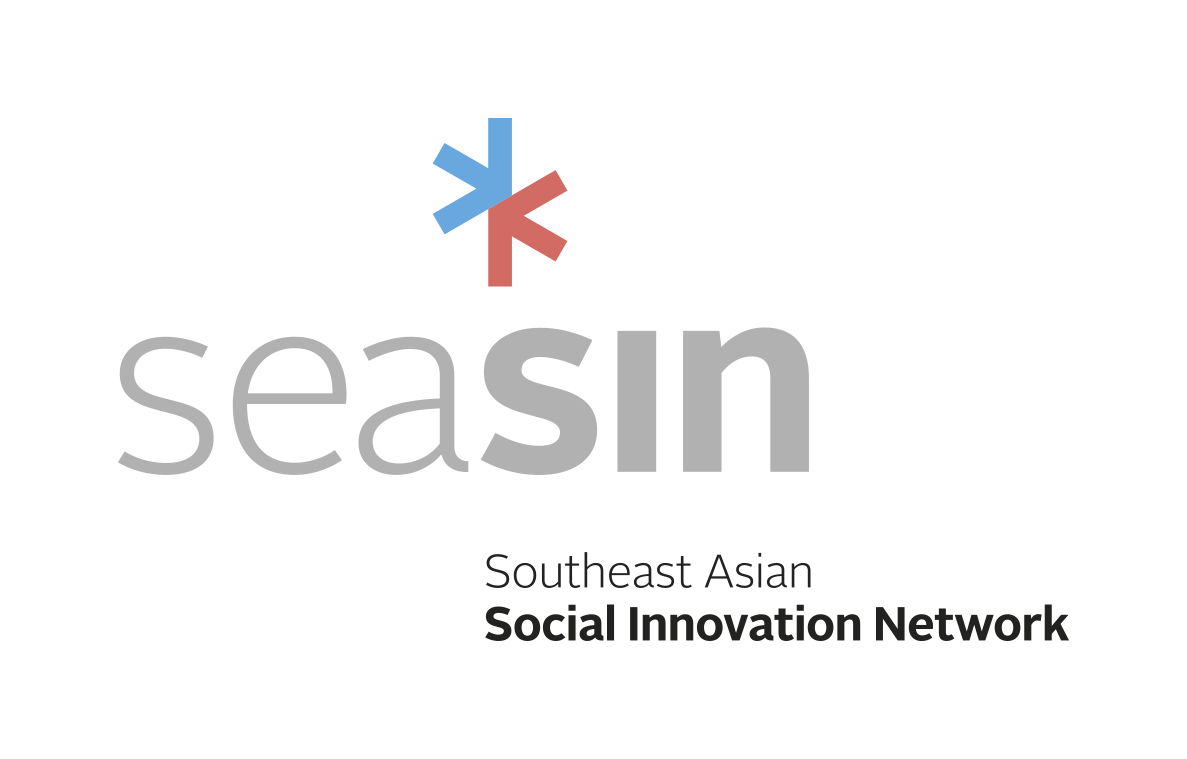










 U Ye Myint (Entrepreneur)
U Ye Myint (Entrepreneur)
 Q & A session (31.7.2018)
Q & A session (31.7.2018)


Recent Comments